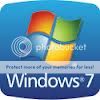techgeek :
Windows 8 did away with the "Retail" version. There are only the "Upgrade" and "OEM" versions.
Wow. I didn't realize that. And here I just bought the Full Retail Version of Windows 8.1 just 3 days ago. If I would have known that it wasn't sold, I wouldn't have bothered going to the store.
I think what you mean to say is, Microsoft still sells OEM and Retail versions, but there is no longer a difference except in the packaging of the product and whether or not you get a limited time of free support from Microsoft. OEM is generally less expensive, and Upgrade is less expensive. You have to have a valid upgrade path to use the Upgrade version. With OEM, however, you don't get the free direct support from Microsoft support personnel.
I bought the full Retail version, simply because I upgraded a machine from XP (hardware upgrades first, then installed the OS as a clean install to a new SSD.) I thought the support might come in handy with issues associated with the new OS, as I've never used Windows 8.1 until 3 days ago.
Here's my suggestion for the Opening Poster
-------------------------------------------------------------
Go with the Retail version if you think you may need the support from Microsoft to get you running the way you want to be running. Or at least get ONE retail version, and the rest OEM. If all the machine builds are the same, questions to Microsoft about one should answer the questions on the other, because the questions will be the same.
You will have to spend the money and purchase multiple licenses. A license can only be used on one computer. Your only other option, since you say buying multiple license keys will affect your budget, is to put Windows 8.1 on one machine, and a version of Linux or another free OS on the other systems. I don't think you'd be happy that way. If you can't afford the OS with the computers, then you can't afford the computers. Buy what you can afford, and save up for the rest.



